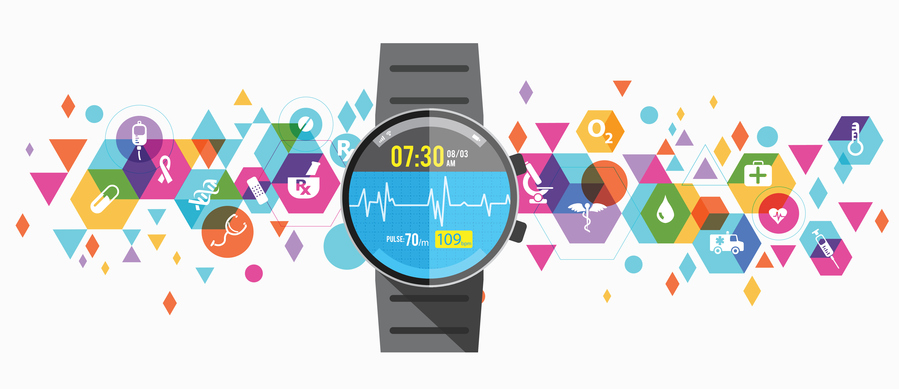
Could wearables be used to detect potential Covid-19 cases? A group of researchers at the Scripps Research Translational Institute found that changes in sleep, activity levels and heart rate, paired with symptom data, could be used to identify Covid-19 cases. Their results were published in Nature on Thursday.
The idea behind the study was to provide a more effective way to detect potential cases of Covid-19 than the mix of temperature screenings and symptom checklists that many businesses and schools currently use. Temperature alone is not a good indicator — according to a study of hospitalized Covid-19 patients in New York, less than a third of them had an elevated temperature when they were admitted.
“We want to do something more than is done now — checking temperature and symptoms. We think that is not enough,” said Giorgio Quer, the study’s first author and director of artificial intelligence at the Scripps Research Translational Institute. “The goal here is really early identification of Covid-positive to slow down the spread.”
More than 30,500 people enrolled in the app-based study between late March and early June. They reported symptoms and test results in the app, and consented to sharing anonymized data on their heart rates, sleep and activity levels from their wearable devices.
Of them, a total of 3,811 reported symptoms, with 54 testing positive and 279 testing negative for Covid-19. One potential reason for the relatively low testing numbers was that the data was collected earlier in the pandemic, when fewer tests were available. In recent months, Quer said, more people have reported testing data.
A baseline for each individual’s heart rate, sleep and activity level was calculated for the study. With this data and reported symptoms, a model was able to predict with 80% accuracy whether a person who experienced symptoms was likely to have Covid-19.

A Deep-dive Into Specialty Pharma
A specialty drug is a class of prescription medications used to treat complex, chronic or rare medical conditions. Although this classification was originally intended to define the treatment of rare, also termed “orphan” diseases, affecting fewer than 200,000 people in the US, more recently, specialty drugs have emerged as the cornerstone of treatment for chronic and complex diseases such as cancer, autoimmune conditions, diabetes, hepatitis C, and HIV/AIDS.
In particular, researchers found a significant difference in sleep and activity levels for people who tested positive for Covid-19, compared to participants who reported symptoms but tested negative.
“A change in your baseline, that’s what’s indicative of something happening,” Quer said. “We saw that for sleep, activity and resting heart rate. It can be a sign of an infection.”
The study still had some limitations, including the small number of people who reported a test result. Also, people who own smartwatches or activity trackers might not be reflective of the general population, including groups who have been most affected by the pandemic. A smaller portion of participants in the study reported lower incomes or were older than age 50.
Researchers are recruiting more people for the DETECT study, with the goal of enrolling more than 100,000. In particular, they hope to include data from more essential workers, who face an increased risk of exposure to the virus.
In the future, Quer said they plan to investigate the use of wearables to detect potential cases of Covid-19 in people who are not symptomatic, and alert them that they might want to get tested.
“This is more complicated, but it’s extremely important for studying this virus,” he said. “If we could suggest for people who are higher risk to do a test as early as possible … that would be big.”
A significant portion of people who test positive for SARS-Cov-2 either report no symptoms or are pre-symptomatic, contributing to the spread of the virus.
“We know that common screening practices for the coronavirus can easily miss pre-symptomatic or asymptomatic cases,” Jennifer Radin, an epidemiologist at Scripps who is leading the study, said in a news release. “And infrequent viral tests, with often-delayed results, don’t offer the real-time insights we need to control the spread of the virus.”
Photo credit: exdez, Getty Images












